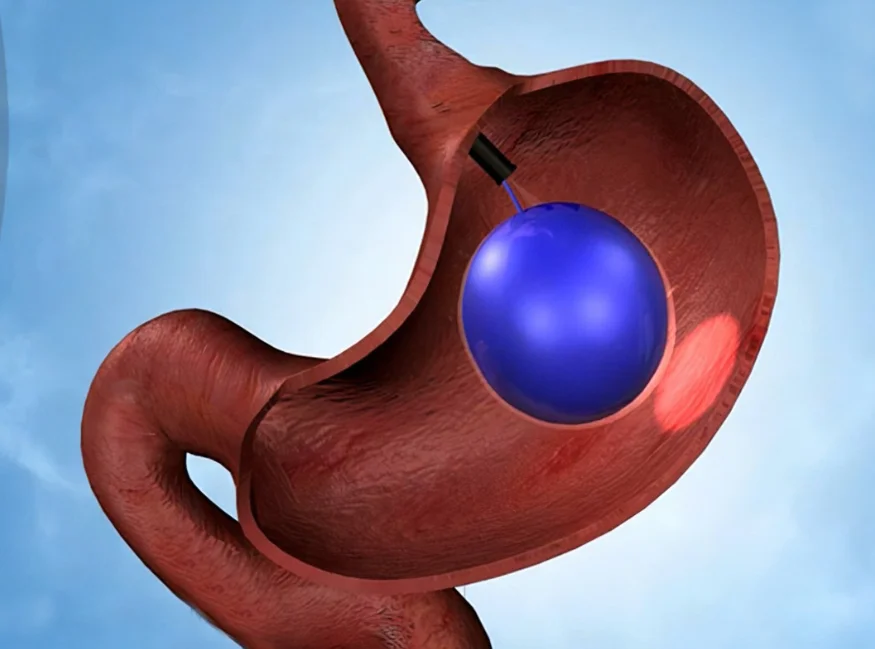Abciximab is an antiplatelet medicine. It inhibits platelet aggregation by inhibiting Glycoprotein II b/ IIIA.
Patients having percutaneous coronary intervention utilise abciximab to reduce cardiac ischemia problems (PCI).
PCI is used to prevent cardiac ischemia sequelae in patients with unstable angina (UA) and non-ST-elevation myocardial infarction (NSTEMI) who are unresponsive to conventional therapy when it is scheduled within 24 hours.
Contraindications to Abciximab (Reopro):
- Allergy to abciximab, to proteins from mice, or to any ingredient in the preparation
- Internal bleeding that is ongoing or recent (within 6 weeks) gastrointestinal or genitourinary bleeding that is clinically severe;
- Having a recent history of a cerebrovascular accident or having a substantial neurological deficiency
- Unless the prothrombin time (PT) is less than 1.2 times, oral anticoagulants should not be used unless there are clotting problems. manage the PT value
- Thrombophilia (less than 100,000 cells/L)
- Recent (within 6 weeks) a serious procedure or injury
- Aneurysm, arteriovenous malformation, or an intracranial tumour
- Uncontrolled, severe hypertension
- A background of vasculitis
- Intention to utilise dextran during PTCA or take dextran beforehand
- Usage of a different parenteral GP IIb/IIIa inhibitor concurrently
Abciximab dose in Adults:
Percutaneous coronary intervention (PCI):
- An intravenous 0.25 mg/kg bolus was administered over a period of 10 to 60 minutes before to the start of PCI. After that, a 0.125 mcg/kg/minute infusion was administered for 12 hours (up to a maximum of 10 mcg/minute).
Unstable angina (UA) and non-ST-elevation MI (NSTEMI), both of which are refractory to traditional medical care, with scheduled PCI within the next day:
- 0.25 mg/kg IV bolus, followed by a 10-mcg/min infusion lasting 18 to 24 hours and ending one hour after PCI.
Myocardial infarction with ST-elevation (STEMI) receiving the primary percutaneous coronary intervention (PCI) (unlabeled use):
- 0.25 mg/kg intravenous bolus given at the time of percutaneous intervention is the loading dosage.
- For up to 12 hours, a maintenance infusion of 0.125 mcg/kg/minute (up to 10 mcg/minute) was administered.
Dose in Renal Impairment:
- The manufacturer's labelling does not mention dose adjustments.
Dose in Hepatic Impairment:
- The manufacturer's labelling does not mention dose adjustments.
How to administer Abciximab?
- In order to maintain a therapeutic bleeding time after angioplasty, a combination of aspirin and abciximab is recommended.
Do not shake the vial
Usual Infusion Concentrations:
Adult I.V. infusion:
- 250 mL of D5W or NS containing 7.2 mg (concentration: 28.8 mcg/mL)
- 36 mcg/mL of 9 mg is present in 250 mL of D 5 W or NS.
Compatibility:
- In both regular saline and dextrose water, abciximab is stable.
- It is best to deliver abciximab using a different intravenous line. PVC bags or glass bottles have not been found to be incompatible.
Y-site administration:
Compatible: the following substances: adenosine, argatroban, atropine, bivalirudin, diphenhydramine, fentanyl, metoprolol, and midazolam.
Variable: Tenecteplase.
Pregnancy Risk Factor: C
- Abciximab is not recommended for pregnant women. It can cross the placenta in small amounts.
- It is unknown if it can cause harm to the fetus.
Lactation:
- Excretion in breast milk is unknown. It may be used with caution in lactating women.
Frequently observed adverse effects of Abciximab include:
- Hematologic: Minor bleeding (4.0% to 16.8%)
- Cardiovascular: Hypotension (14.4%), chest pain (11.4%)
- Gastrointestinal: Nausea (13.6%)
- Neuromuscular & skeletal: Back pain (17.6%)
Less common complications include:
- Local: Injection site pain
- Central nervous system: Headache
- Cardiovascular: Bradycardia, peripheral edema
- Gastrointestinal: Vomiting, abdominal pain
- Hematologic: Major bleeding, thrombocytopenia: <100,000 cells/mm 3; <50,000 cells/mm 3
Rare but essential adverse effects:
aberrant thinking, myalgia, nodal arrhythmia, pleural effusion, pulmonary embolism, prostatitis, pruritus, stroke, urinary retention, ventricular tachycardia, xerostomia, bullous eruption, coma, confusion, diabetes mellitus, embolism, hyperkalemia, ileus,
Mechanism of Action of Abciximab:
Abciximab binds to Glycoprotein II b/IIIa, inhibits it, and prevents platelet aggregation.
Pharmacodynamics/Kinetics
Rapid action begins after just 10 minutes, with platelet aggregation decreased to 20% of baseline.
Abciximab has an action period of up to 72 hours to restore normal hemostasis.
Abciximab has a half-life of around 30 minutes;
Up to 4 hours pass before dissociation from GP IIb/IIIa receptors occurs.
About 30 minutes pass before platelet inhibition reaches its apex.
Abciximab Brands in Pakistan:
Reopro (Eli Lilly):
Injection: 2 mg/ml:
5 ml vial: Rs. 24200
Clotinab (Mission Pharmaceuticals):
Injection: 2 mg/ml:
5 ml vial: Rs. 20750
Rivaroxaban/ Xarelto - Factor Xa inhibitor
Eltrombopag/ Revolade for Thrombocytopenia




